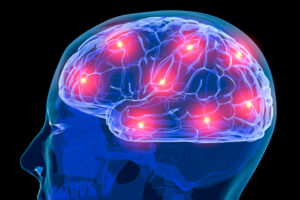Neurology
Epilepsy
Newer Antiepileptic Drugs and Their Impact on Cognition and Behavior in Children
Overview
Some studies indicate that the newer antiepileptic drugs (AEDs) do not interfere with learning, while others have found an association between some newer AEDs and behavior. Cognitive and behavioral impact from AEDs may be an important consideration for children and adolescents with epilepsy.
Expert Commentary
James W. Wheless, BScPharm, MD, FAAP, FACP, FAAN, FAES
|
|
“The good news is that, because so many different AEDs are available today, a child who is not tolerating a given medication can be switched to another AED that better matches their chemistry to help eliminate learning, cognitive, or behavioral problems.”
Assessing the impact of AEDs on cognition and behavior is complicated, especially in children and adolescents, whose brains are still developing. The brain is more developed at 6 years of age than it was at 5 and 4, whereas, the brain of a 20- or 30-year-old patient may be much less of a moving target. Further, it can be challenging to delineate how much of an impact the epilepsy itself has on cognition, as opposed to the side effects of treatment. Years ago, work by Hermann et al showed that, even at baseline, patients with epilepsy have higher rates of learning- and cognition-related problems than the general population. Epilepsy is a disease of the brain; as such, associated learning or cognitive problems are not unusual. The majority of cognitive problems are, in fact, believed to be due to the epilepsy itself, while only a small proportion are thought to be due to the AEDs.
For many of our older medications, the data related to cognitive effects are more mixed and difficult to make sense of. Somnolence, a common side effect of AEDs, can adversely impact attention and learning. In the modern era, using neurocognitive testing at baseline and during treatment, we can document that many of our newer medications do not have a negative effect on cognition and do not interfere with learning. Such studies indicate that newer AEDs, such as perampanel, lacosamide, and levetiracetam, do not interfere with learning. However, learning is a complex end point in that it may be influenced by other variables and behaviors. Irritability can certainly impact a child’s ability to learn in the classroom, and recent studies have found an association between some AEDs and behavior related to irritability. In a recent study published in Epilepsy & Behavior, we found that pediatric patients treated with levetiracetam had the highest rate of behavioral problems, and, because of that, the highest rate of discontinuation. The Affective Reactivity Index appears to be a sensitive measure of AED-related irritability. Treating physicians, therefore, must be careful to ask caregivers about their child’s academic performance, behavior, and mood to determine whether these are being affected by the AED. The good news is that, because so many different AEDs are available today, a child who is not tolerating a given medication can be switched to another AED that better matches their chemistry to help eliminate learning, cognitive, or behavioral problems.
References
Halma E, de Louw AJ, Klinkenberg S, Aldenkamp AP, IJff DM, Majoie M. Behavioral side-effects of levetiracetam in children with epilepsy: a systematic review. Seizure. 2014;23(9):685-691.
Hermann BP, Jones JE, Jackson DC, Seidenberg M. Starting at the beginning: the neuropsychological status of children with new-onset epilepsies. Epileptic Disord. 2012;14(1):12-21.
Jackson DC, Dabbs K, Walker NM, et al. The neuropsychological and academic substrate of new/recent-onset epilepsies. J Pediatr. 2013;162(5):1047-1053.e1.
Loring DW, Meador KJ, Shinnar S, et al. Differential antiseizure medication sensitivity of the Affective Reactivity Index: a randomized controlled trial in new-onset pediatric focal epilepsy. Epilepsy Behav. 2020;102:106687.
Operto FF, Pastorino GMG, Mazza R, et al. Effects on executive functions of antiepileptic monotherapy in pediatric age. Epilepsy Behav. 2020;102:106648.
Toledo M, Fonseca E, Olivé M, et al. Long-term retention rates of antiepileptic drugs used in acute seizures. Seizure. 2018;61:78-82.











